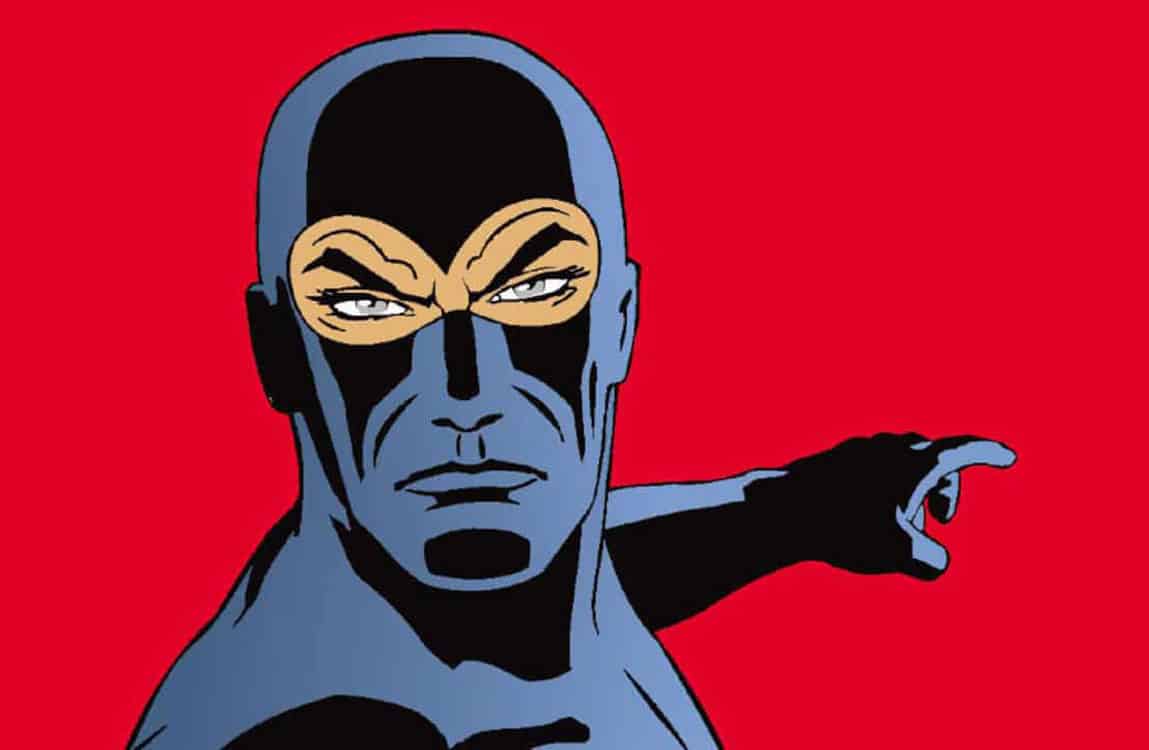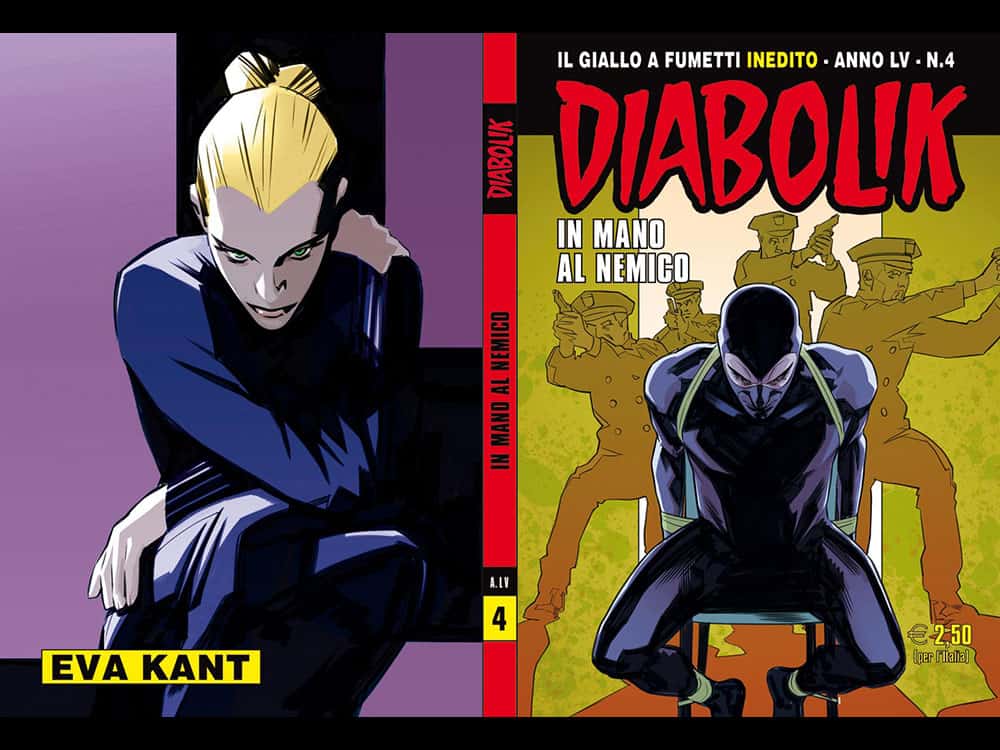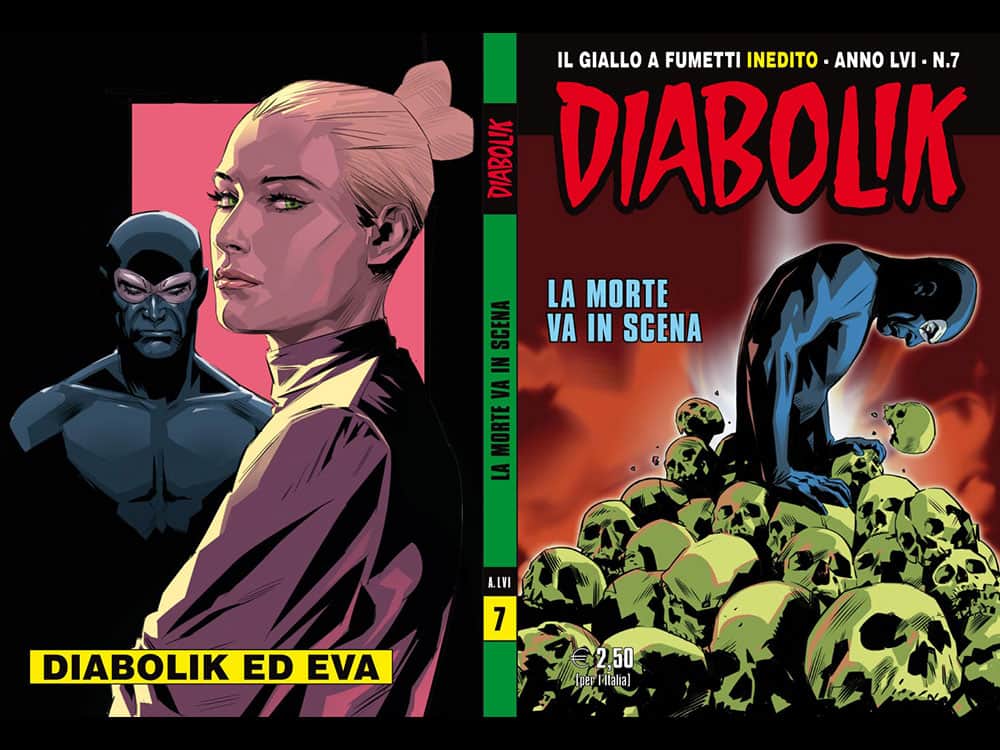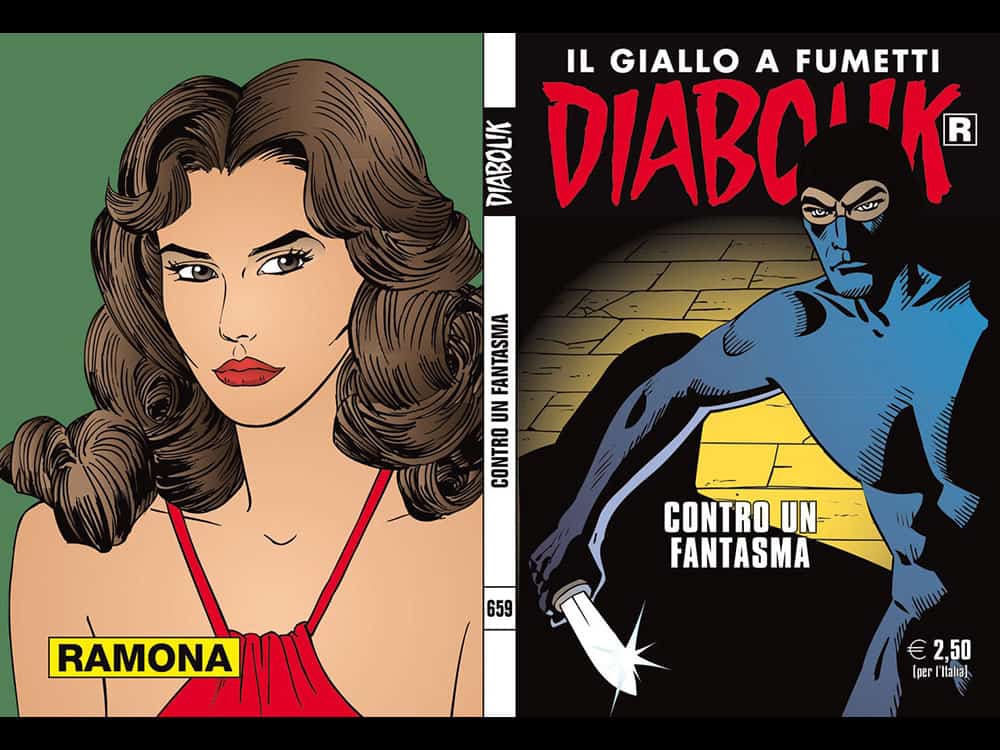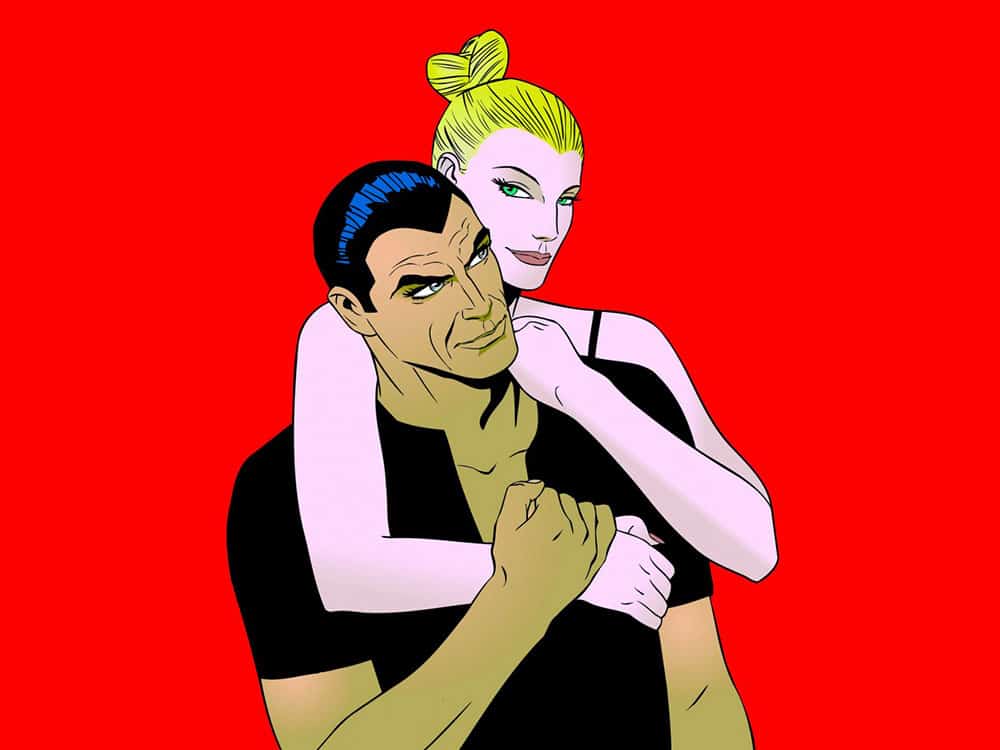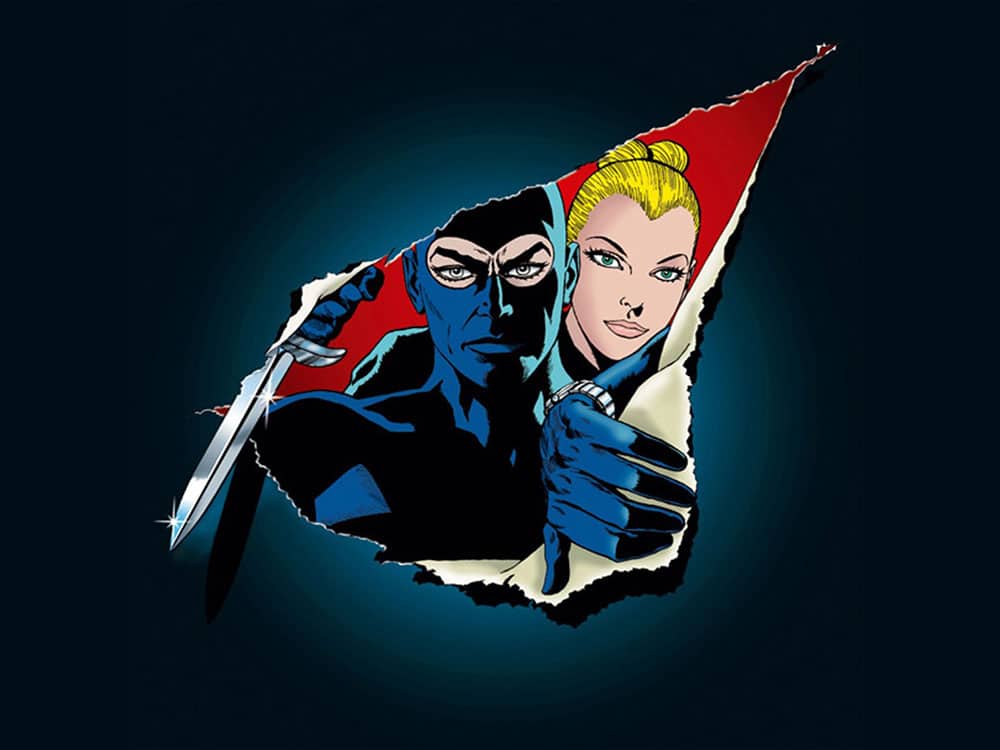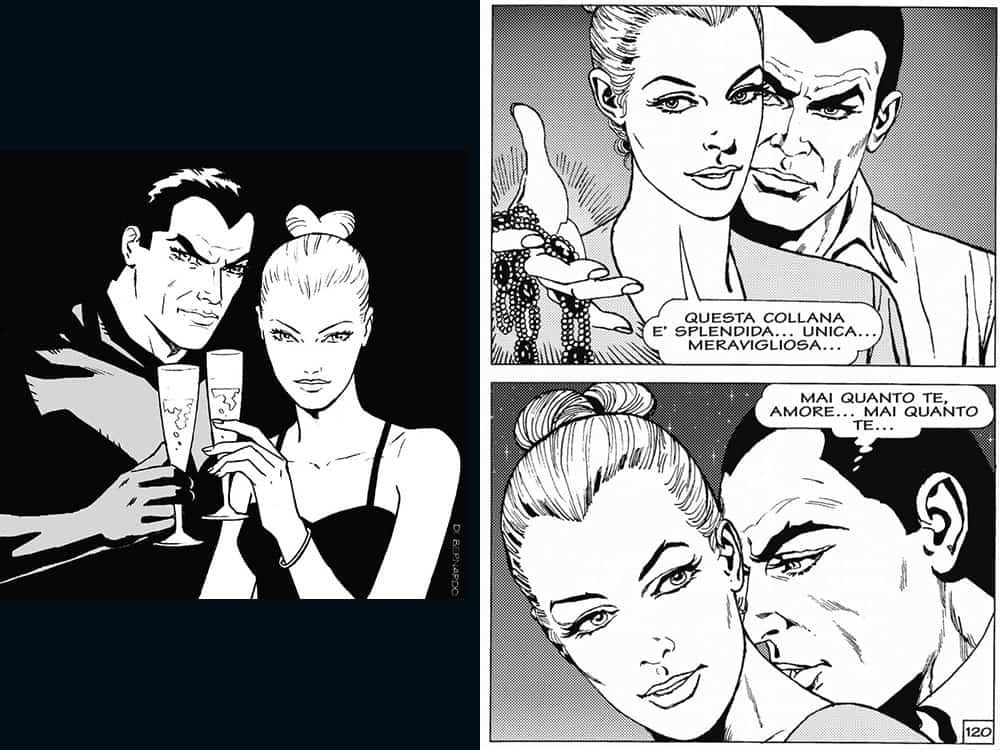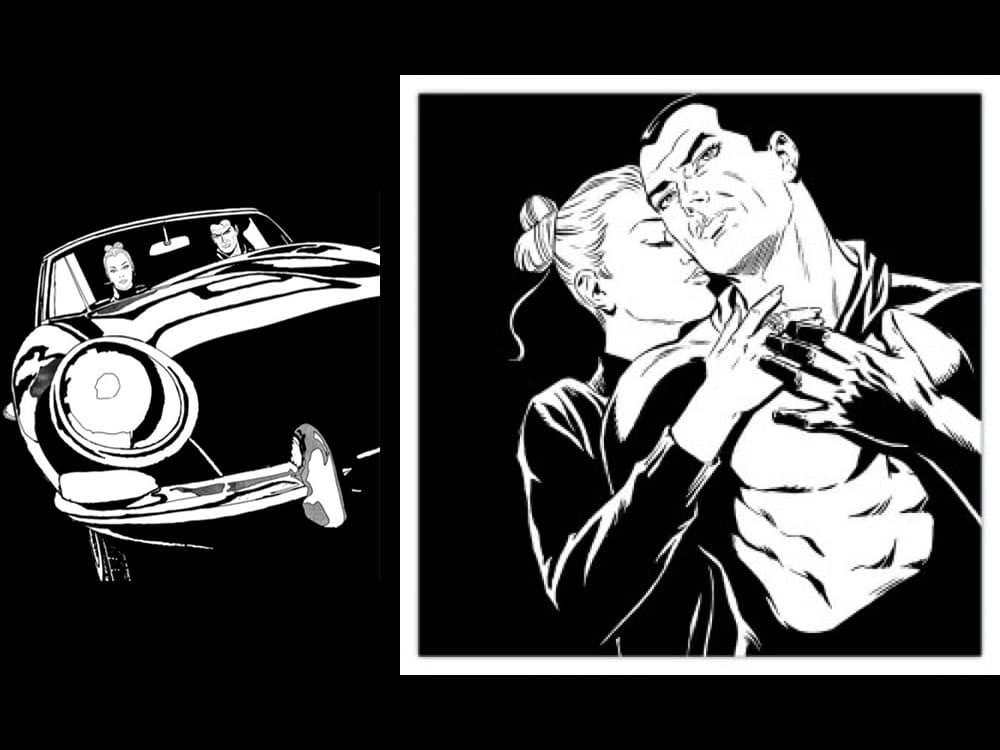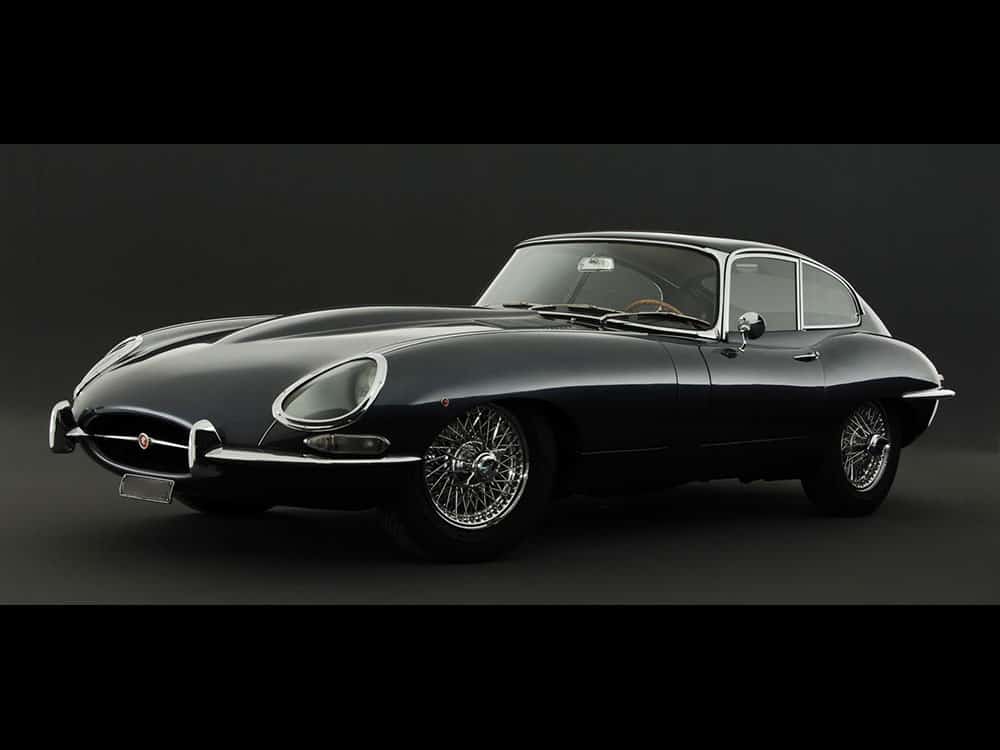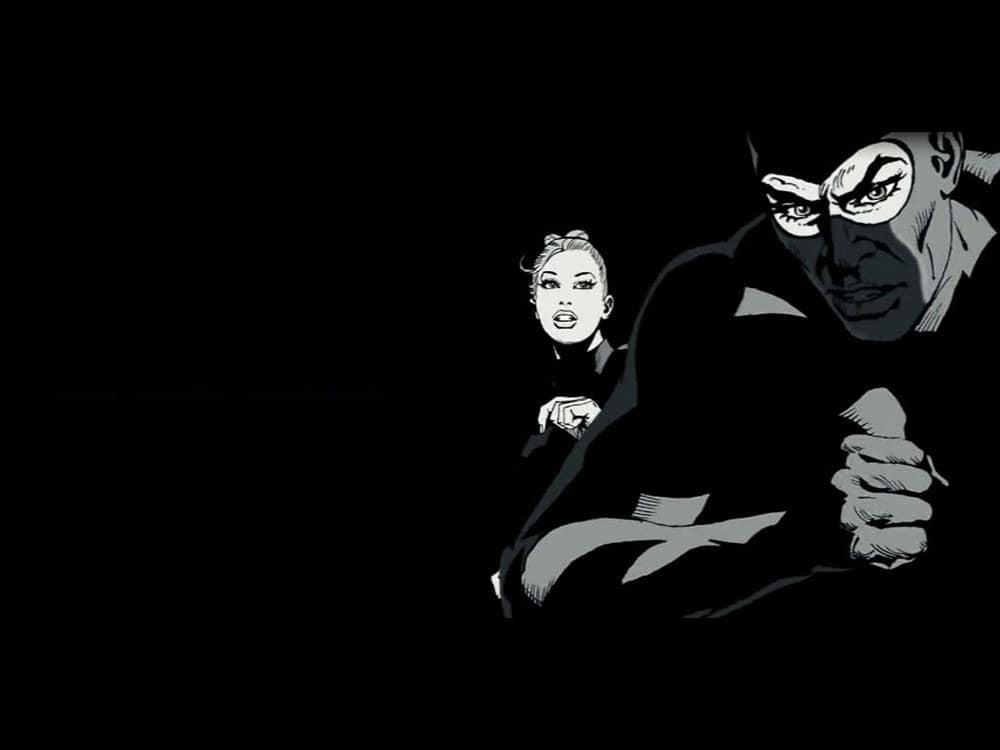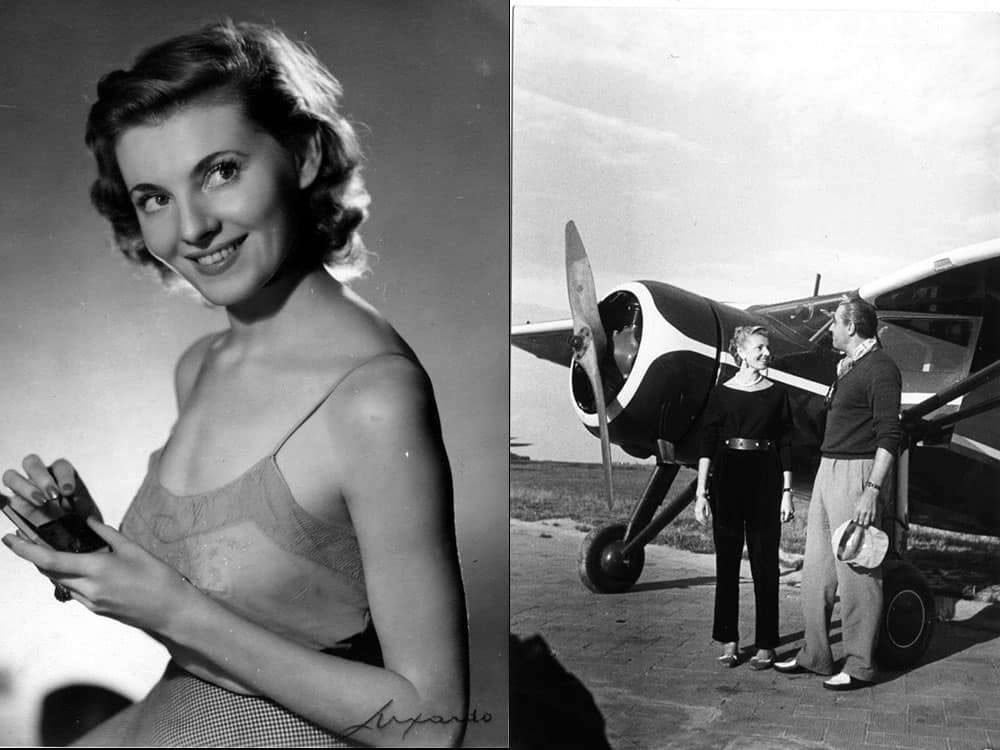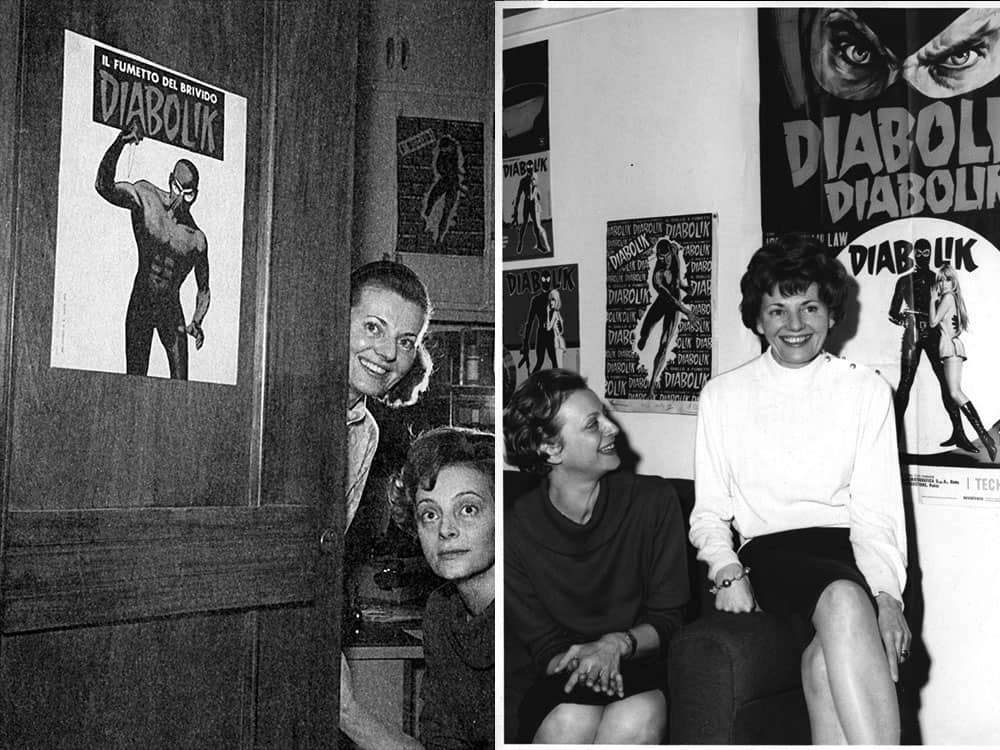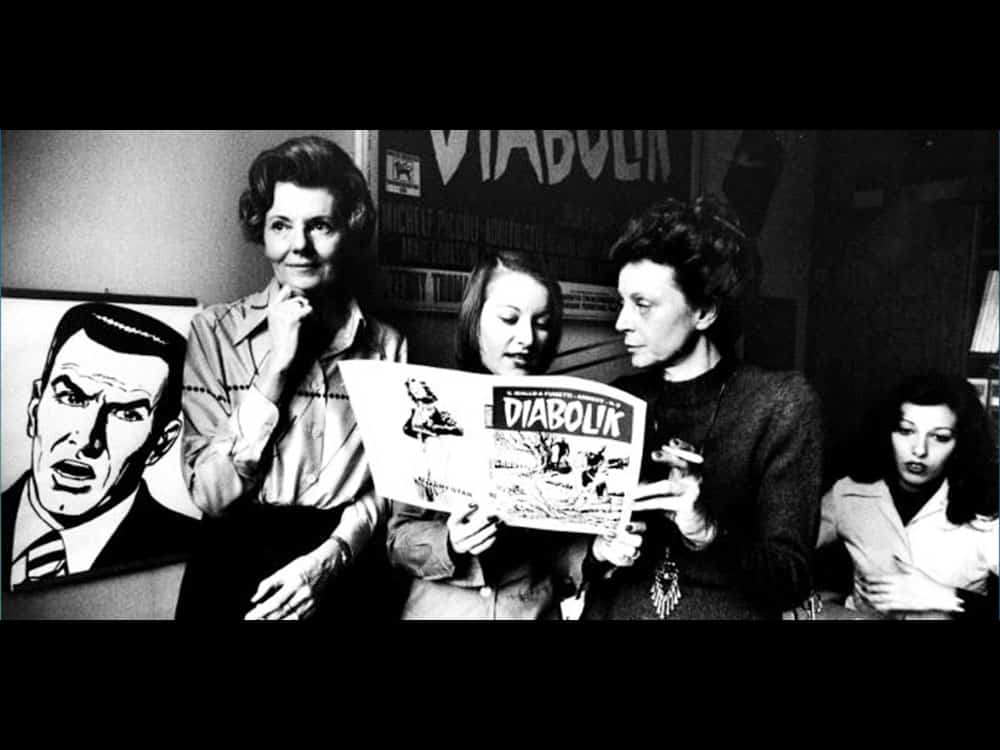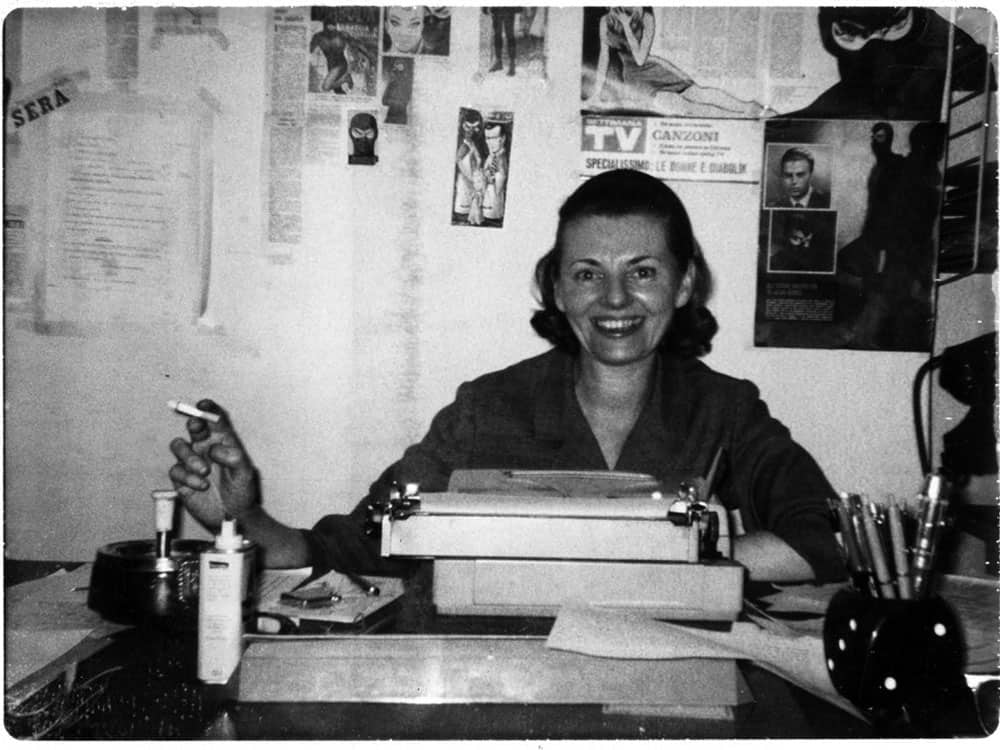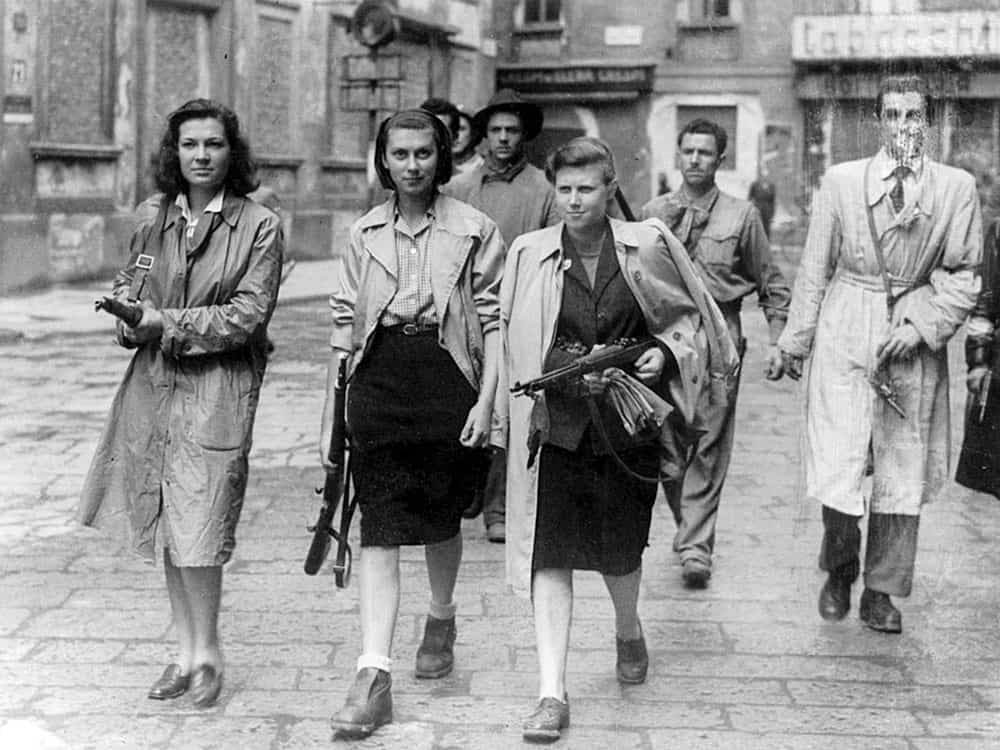Today’s news is that a film version of one of the most famous Italian comics, Diabolik, invented in by the Giussani sisters in the ‘60, will be released on the screens and the famous beloved criminal will be played by Luca Marinetti, one of my favorite Italian actors.
The first issue of the comic strip comes out in November 1962 and creates a great scandal because, contrary to what happens in the other comics stories, Diabolik is really bad and merciless.
After his debut in 1962, the comic book soon reached very high print runs, becoming a phenomenon studied by sociologists and communication experts. The format of the Diabolik books, designed to be pocket-sized, was invented to meet the needs of the commuters whom Angela Giussani observed every morning from the window of her house, near the Cadorna station, in Milan.
For over fifty years Diabolik has been published without interruption and has exceeded 850 published episodes; the first numbers of the series have reached high market prices in collecting. Since its inception, Diabolik has sold nearly 150 million copies.
Over the years the genesis of the controversial character emerges and slowly the myth of this anti-hero was created.
Diabolik is a thief with a strong fondness for precious jewels or huge amounts of money and he does not hesitate to kill those who obstruct his plans. Despite carrying out illegal activity, he is endowed with deep-rooted ethical principles, even if very personal (honor, protection of the weakest, a sense of friendship and gratitude, respect for noble souls), and therefore he hates mobsters, narcotics traffickers, loan sharks, and torturers.
The story says that, on a stormy night on an island far from any route, a lifeboat is sighted off the coast; aboard, some agonizing castaways and a miraculously unharmed child. The child is rescued and raised by the inhabitants of the island, which is, in reality, the refuge of an international band of outlaws commanded by a real crime genius named King.
The unidentified castaway grows up, demonstrating an extraordinary intelligence; he learns the various languages spoken by King’s men, and, above all, the various criminal techniques.
Thanks to his notions of chemistry, the young man (now twenty years old) develop a particular procedure that allows him to create perfect plastic masks, thanks to which he can take on the appearance of anyone.
When he discovers that King intends to eliminate him to take over the secret of the masks, he kills him, replaces him, orders his “men” to load all the island’s riches onto a motorboat and reaches the mainland.
After spending a period of time “in the East” perfecting fighting techniques he moved to Clerville where soon his battle name – Diabolik, the same as a black panther that the King kept, stuffed, in his studio – becomes synonymous of terror, death, and crimes. Although the State of Clerville has, in fact, abolished the death penalty, for the King of Terror this moratorium does not apply: in the event of capture, he will be immediately guillotined.
In March 1963 we assist to the fatal meeting between Diabolik and his partner Eva Kant: he is the King of Terror and she is a fascinating widow suspected of having killed the rich husband. Their love, passionate and criminal, will last forever.
This, in a nutshell, the birth of Diabolik: a surreal story designed to justify a character with extraordinary talents, a not acceptable morality but in his own way mirrored, a charge of brutal but controlled violence.
I was born in 1959, shortly before him and as a young girl the Diabolik comics at my house were banned: my mother evidently feared that the dark and attractive character could undermine my morality and my belonging to civil society.
Of course, I find it difficult to think of myself, considering that at that time I was a clumsy and fearful little girl, in the potential of a seductive platinum criminal but obviously my mother preferred to protect me from every possible delinquent path.
Anyway, what I find very interesting it is not so much the creation of a controversial character but the mind, in this case, we should say the minds that generated it.
Angela and Luciana Giussani were two beautiful, educated, witty and restless ladies of the good Milanese bourgeoisie who became entrepreneurs in years when such an operation was totally anomalous: they had to face accusations and criticisms, trials and confiscations in order to defend their “creature”.
Angela Giussani was born in Milan in 1922, she has a strong, outgoing and rebellious character. In the fifties, when the few women who drive a car are still looked at with curiosity and suspicion, Angela had an airplane pilot’s license. She was also a passionate horseback rider, a skier and practiced various other sports.
My beloved uncle Carlo, the black sheep of the family, had the opportunity to assist the intrepid Giussani sisters as their architect: in fact, he designed for them their beautiful lake house and the headquarters of the Milanese publishing house Astorina that still to this day publishes the comic.
He told me that the two sisters, convinced feminists, great workers and inextricably linked, had hung in their office in Piazza Cadorna a famous photo that depicts three young partisans who proudly march with their rifles towards the lens.
And I think this served to make it clear to those who entered the publishing house, what kind of women they had to deal with.
Obviously my sisters and I, subjugated by the charm of Diabolik and the fact that it was forbidden, read and reread it every time we had the opportunity (in all the other families it was treated with less suspicion!), but nevertheless neither I nor them have become criminal offenders and to tell the truth, however, I try hard to hide it, I am still rather clumsy and fearful.
Betti
[socialWarfare]


